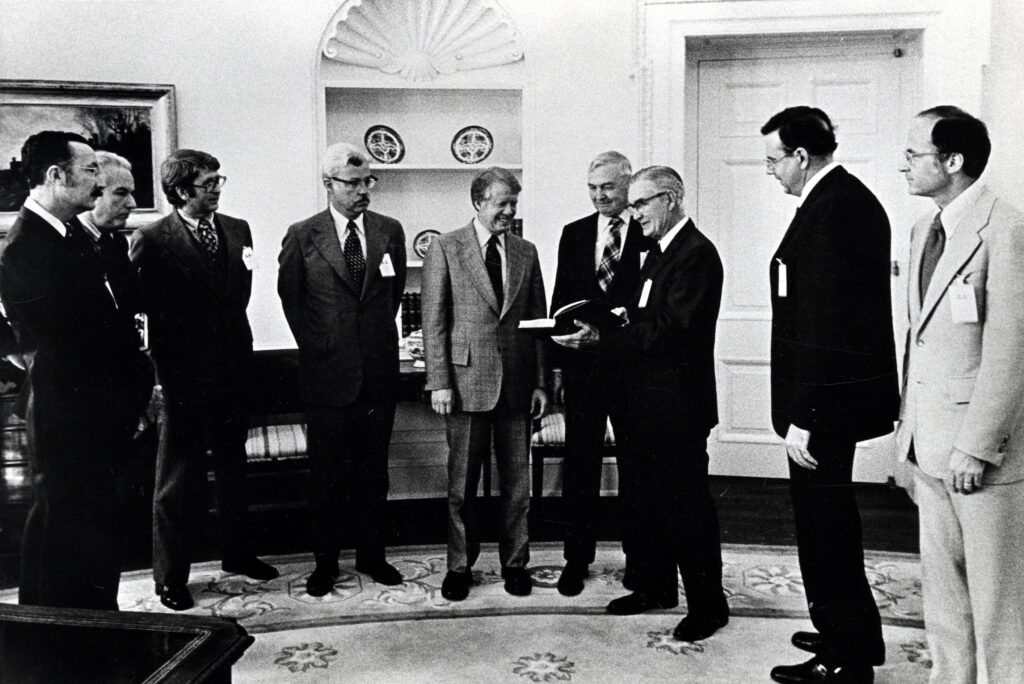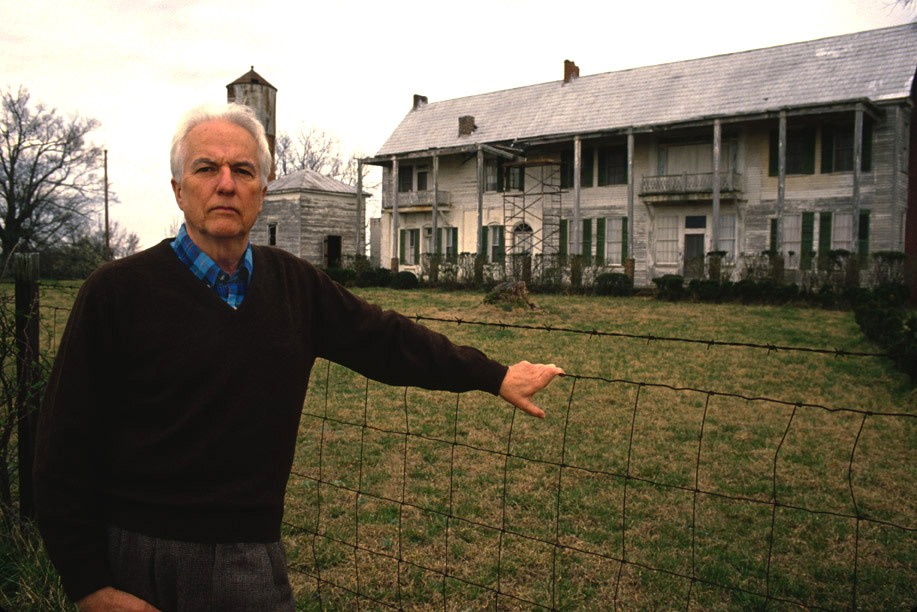As a professor of history at the University of Georgia, Phinizy Spalding emerged as the nation’s leading scholar on James Oglethorpe. He wrote more than twenty books, articles, and chapters about Oglethorpe and colonial Georgia. He was also an influential leader in historic preservation efforts in Athens and across Georgia.
Born on September 29, 1930, Billups Phinizy Spalding was the youngest child of Bolling Phinizy and Daniel Hughes Spalding. Reared in Atlanta, Spalding received his bachelor’s and master’s degrees in English literature from the University of Georgia, where he wrote his master’s thesis about the poetry of William Alexander Percy, the artistic and literary figure from Mississippi who raised Spalding’s first cousin, writer Walker Percy. For his doctoral work at the University of North Carolina, which he completed in 1963, Spalding studied American history and prepared his dissertation on James Oglethorpe’s influence on the colonies of Georgia and South Carolina. After teaching at the College of Charleston for three years, in 1966 Spalding joined the faculty at the University of Georgia, where he was a professor of history until his death.
Among Spalding’s most distinguished publications was his book Oglethorpe in America (1977), nominated for a Pulitzer Prize in biography. The same year he also provided the section on the colonial era in A History of Georgia, edited by Kenneth Coleman, which remains the definitive history of the state. His scholarship, however, was not limited to these areas, for it also engaged several other aspects of Georgia’s history and culture, including Georgia Health Sciences University, women at Fort Frederica, and the Lucy Cobb Institute in Athens. Spalding also wrote about Walker Percy, wrote introductions for books about ecology and art collecting in Georgia, and penned the preface to the 1990 reprint of the WPA’s Georgia: A Guide to Its Towns and Countryside. Spalding served as the editor of the Georgia Historical Quarterly from 1974 until 1980, helping it to emerge as one of the nation’s prominent state history journals. He presented scholarly works but also appealed to a wider audience by creating the “Cracker Corner,” a less formal feature on the state’s past.

An engaging teacher and mentor, Spalding encouraged his undergraduate and graduate students to examine history in broad terms. His classroom lectures frequently included such varied historical topics as the Atlanta Crackers baseball team, African American churches, and Georgia barbecue. Spalding also spoke to organizations, schools, and historic and preservation societies in every corner of the state, and as typified in his fabled tours of Savannah, he frequently addressed local history, architecture, music, literature, food, art, and rural, natural, and cultural resources. He also coordinated the University of Georgia’s Ferdinand Phinizy Lectureship, named for his prominent Georgia ancestor, and brought national figures in the sciences, arts, and politics to the campus.
Spalding and his wife, Margaret, in 1969 were among the first residents to restore a house in Athens, thereby sparking the historic preservation movement in that city. Together they restored dozens of buildings. He established the Historic Cobbham Foundation, which focused specifically on the restoration and beautification of the residential area in which he lived. Spalding was a member of, and leader in, preservation organizations, including the National and Georgia Trusts for Historic Preservation and the Athens-Clarke Heritage Foundation (now Historic Athens). He inspired citizens throughout Georgia to save the integrity of their neighborhoods, towns, and landscapes through preservation, conservation, and legal measures. Near the end of his life, he led a successful campaign to restore the entire Lucy Cobb Institute campus.
Spalding’s profound influence on Georgia is evidenced by the appearance of his name on a building, a theater, a park, a scholarship, a preservation award, and an endowed professorship at the University of Georgia. For his extensive service to the community and the state, Spalding received the University of Georgia’s Abraham Baldwin Award and, in 1990, a Governor’s Award in the Humanities. He died in 1994 after a long battle with cancer, and is buried, near many of his forebears, in Oconee Hill Cemetery in Athens.








